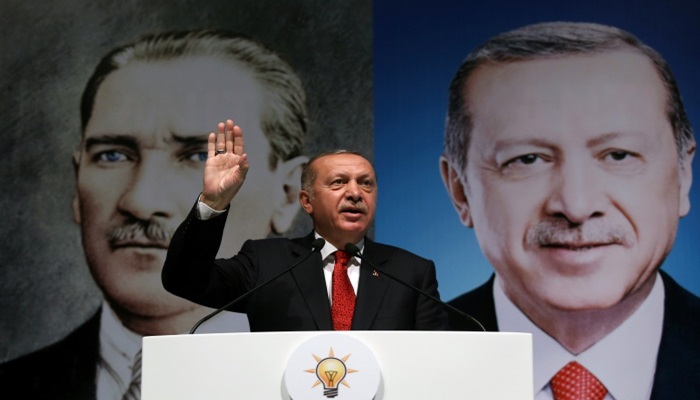The Turkish central bank’s rate hike on Thursday, which raised the key interest rate to 50 percent, brought to mind a tweet by President Recep Tayyip Erdoğan from 2013 in which he criticized the 47 percent interest rate at the beginning of his term in office and praised his economic successes.
Erdoğan’s enduring success has often been attributed to the development and prosperity his government facilitated after a financial crisis in 2001.
The current interest rate exceeds pre-Erdoğan interest rates, which the president considered high, and casts a shadow on his narrative that the ruling Justice and Development Party (AKP) has turned Turkey into an economic success story.
The decision marks a sharp turnaround in Turkish monetary policy amid one of the highest inflation rates in the world, which rose again last month.
The hike comes after a period of aggressive monetary tightening that saw the interest rate rise from a modest 8.5 percent in June to 45 percent in January, a move the bank had originally described as its last in the tightening cycle. The bank cited the “deteriorating inflation outlook” as the reason for its decision,” as annual inflation had risen to 67.1 percent in February.
The timing of the rate hike is critical as it comes ahead of local elections on March 31. President Erdoğan’s government is under scrutiny for its economic performance. Last year, the economic turmoil almost cost Erdoğan his re-election. Nevertheless, he secured victory after pushing through policy measures such as significant wage increases and an early retirement program, which strengthened his support base despite the considerable cost to the government.
Critics, including opposition Democracy and Progressive Party (DEVA) leader Ali Babacan, have pointed out the irony of the situation, noting the stark departure from Erdoğan’s previous stance on lowering interest rates.
Babacan, also a former AKP heavyweight who served as economy minister from 2002 to 2007, compared the current situation to when he left the government, when the interest rate was 7.25 percent, and emphasized the dramatic change under Erdoğan’s leadership.
Mustafa Yeneroğlu, also a former AKP member and current deputy chairman of DEVA, lamented the consequences of disregarding law and order, saying, “We are experiencing the painful consequences as a nation. … You are making the people pay a very high price for all your mistakes.”
What Yeneroğlu was referring to was the steady deterioration of the rule of law in Turkey, especially in the last decade.
Turkey was ranked 117th among 142 countries in the rule of law index published by the World Justice Project (WJP) in October, dropping one rank in comparison to last year.
Turhan Bozkurt, the business editor of the Kronos news website, reflected on the 22-year AKP saga and noted that Turkey is back to square one. “Interest rates rose to 50 percent. Where have we ended up after 22 years?” Bozkurt tweeted.

